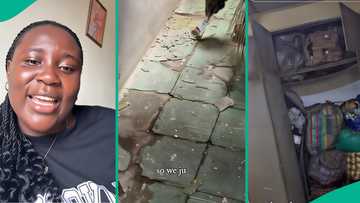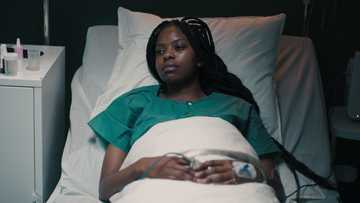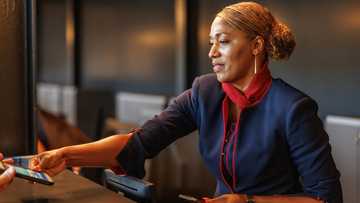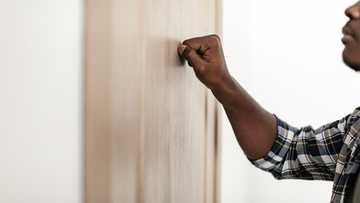My Grandma Fell and Lay Alone for Two Days — Until Her Neighbours Found Her and Saved Her Life
The key was still in the ignition, and the car's engine hummed a meaningless, vibrating song beneath me. My body felt as heavy and immovable as the massive mahogany cupboard in the parlour. Still, the cold, paralysing fear that had been my passenger since Tuesday morning finally forced me out.

Source: Getty Images
It was Friday night, and the usual hustle of the Surulere neighbourhood had died down to a low, murmuring buzz, the sound of evening cooking, distant Afrobeats, and the occasional okada's roar. This wasn't my childhood's welcoming, familiar symphony; tonight, it sounded like a hollow echo.
I stood before the gate of the house she'd lived in for over fifty years, staring at the small, rusted padlock. It wasn't the lock she'd use when she was home. A wave of nausea hit me, and I fumbled for the spare key on my ring, my hands slick with sweat.
"Please let her be at her friend Mummy Bisola's place," I repeated the silent prayer, but the pit in my stomach knew better.
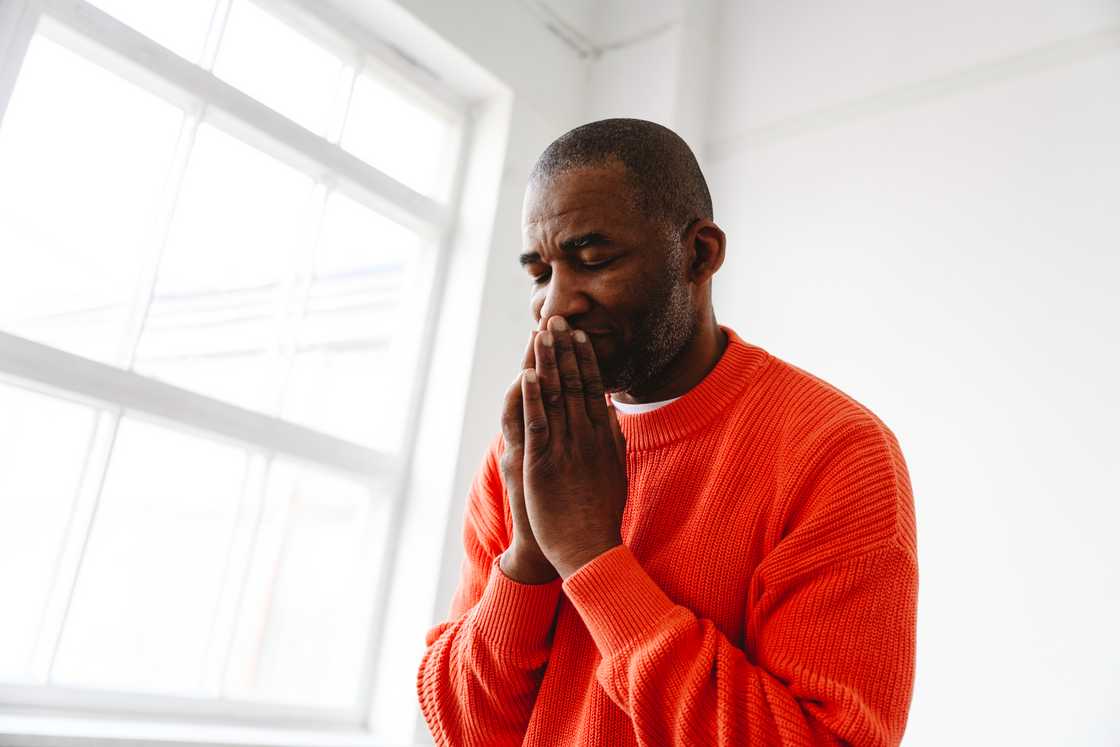
Source: Getty Images
Mama Iye didn't stay out this late, and she certainly didn't go three whole days without calling her 'bank manager,' that's what she jokingly called me, her eldest grandchild, who handled the remittances from Lagos.
The gate creaked open, an ominous, grating sound. I practically sprinted across the small, cemented yard to the front door. It was bolted from the outside.
"No. This can't be." I reached for the second spare key, the one to the front door, and as I pushed it into the keyhole, I saw a small, dark stain on the stone step.
I tried to dismiss it as old oil or a dead leaf, but a sharp and clinical smell hit me as the door swung open, something like disinfectant and old metal. "Mama?" My voice was a choked, pathetic croak.
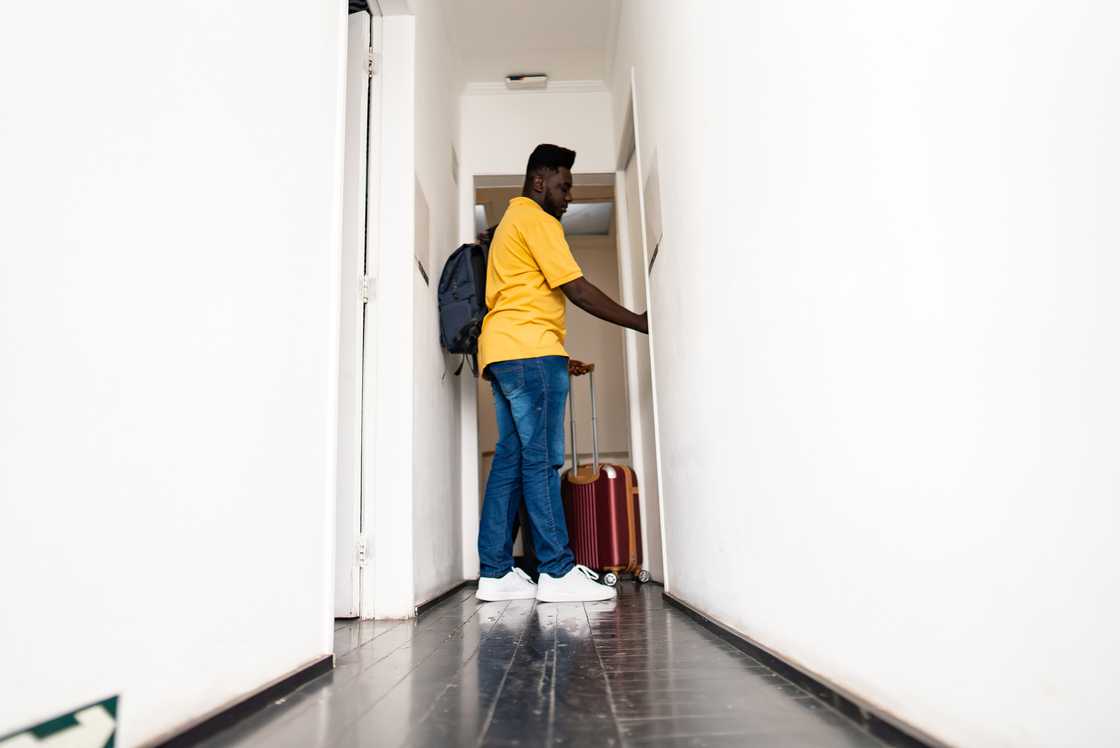
Source: Getty Images
The parlour was dark, but my eyes darted to the kitchen entrance. The light was on. And then I saw the trail, a faint, disturbed line on the linoleum floor, leading from the corridor towards the back of the house.

Read also
"The red flags were there": Lady shares observation about Regina Daniels, Ned Nwoko's wedding
I stumbled forward, my heart hammering a chaotic rhythm against my ribs, expecting the worst: an empty house, a forced entry, a cold still forming. Instead, I found the kitchen empty but spotlessly clean. The sink was dry, and the wooden chopping board was wiped down.
It was almost a let-down, a strange relief that confused the fear. But then, as I turned back, defeated and utterly bewildered, I saw the note, pinned neatly to the parlour table with a small magnet of a Nigerian map outline.

Source: Getty Images
It was written on a sheet of her old ledger paper, in an older woman's sprawling, elegant script. "Chinedu, Mama is at General Hospital, Ward D, Bed 4. She had a fall. Call Mummy Peju (next door). She is stable, thanks to the children and the neighbours. Don't panic. We are here." Mummy Peju.
My knees buckled. I didn't find the worst; I found something infinitely more complex, and in that moment, seeing the 'we are here' on the note, a tidal wave of shame and helplessness washed over me. I hadn't been there.
I should have been. But someone else, a neighbour, a community I had taken for granted, had stepped into the void I had left. Mama Iye, my eighty-year-old pillar, was a woman cut from a different, tougher cloth.

Read also
Wike vs navy officer: Man shares one thing he saw in Lt. Yerima's eyes during heat confrontation
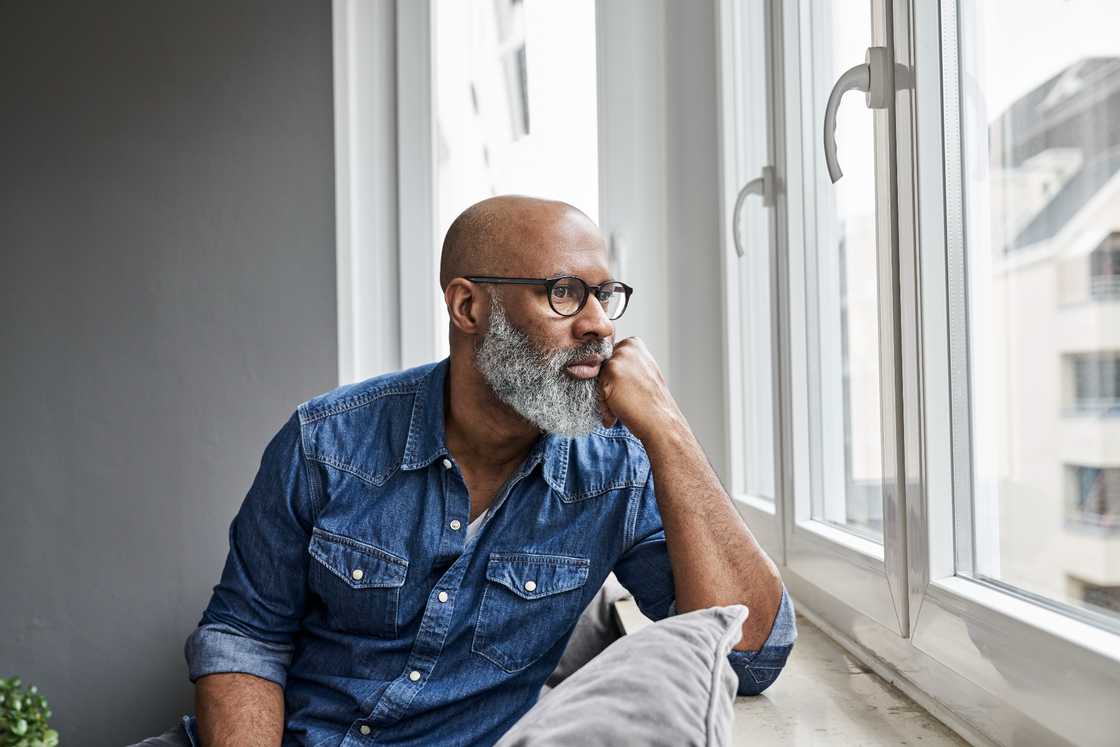
Source: Getty Images
She lived alone in her old neighbourhood, a vibrant, tight-knit area that felt like a village transplanted into the city's heart. Her independence was her most prized possession. "I am not a child!" she would declare, her voice firm, whenever our cousins suggested she move in or have one of us stay with her.
I was her eldest grandchild, and with my parents long since retired outside of Lagos, the responsibility of her financial and practical care had fallen to me.
My remittances kept the lights on and the food coming, but my job as a logistics manager for a large business enterprise meant I was tethered to my small flat miles away. I was the one who couldn't live with her.
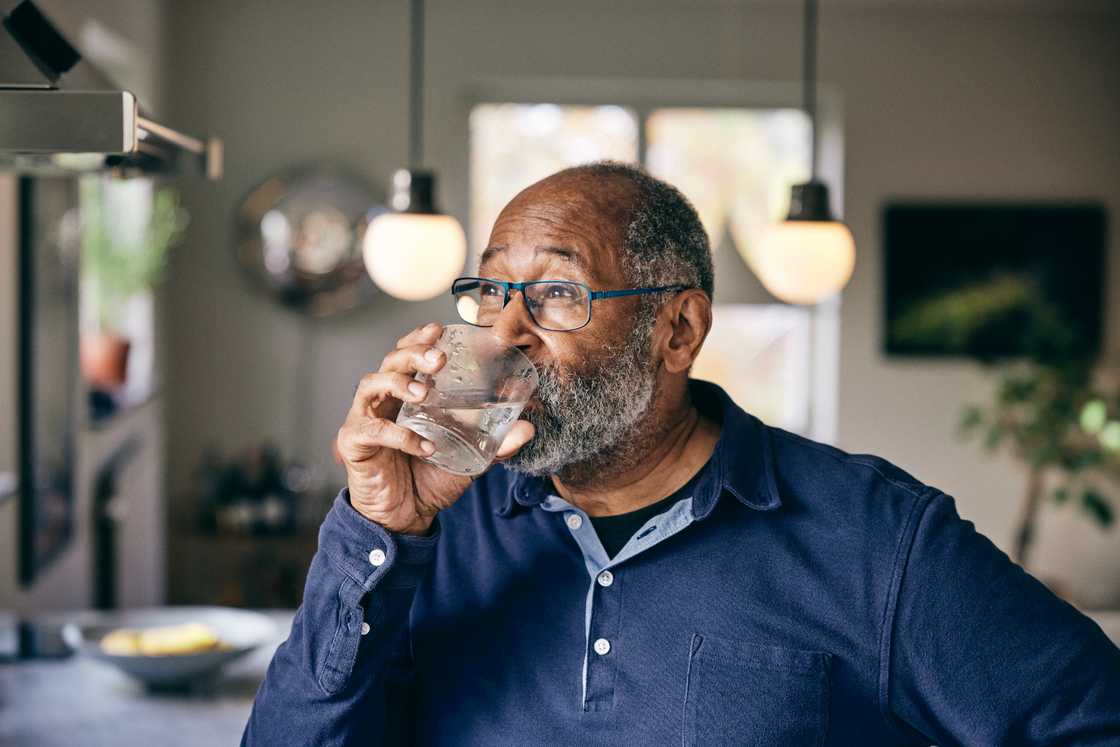
Source: Getty Images
Therefore, the phone became our lifeline. We talked every single day, without fail. A simple check-in was: "Mama, are you fine? Have you eaten? The money came through." The ritual gave my frantic, modern life a necessary anchor.
Every Sunday, I made the pilgrimage to her neighbourhood, spent the afternoon, and then drove back to my city flat. The satisfaction of seeing her healthy and cracking jokes sustained me for the week ahead.
That particular Sunday, I drove back as usual, leaving her waving brightly from the veranda. The drive was tedious, but I called her the minute I arrived safely at my destination, a habit she insisted upon. It was about 7:30 PM.

Source: Getty Images
The phone rang once, twice, three times, and then went to voicemail. Maybe she's praying, I thought, dismissing the slight rise of worry. Monday came, and my day was a blur of spreadsheets and meetings.
I called at lunchtime and in the evening, but there was no answer. I went straight to voicemail. On Tuesday, a complete, oppressive silence stretched between us. I tried calling her landline and old mobile, but there was no answer.
The knot in my stomach tightened into a hard, cold pebble. It wasn't the money or her health, not directly; it was the silence. This was entirely out of character. She always answered. The stakes were clear: I was her only immediate help, yet I was physically absent.

Source: Getty Images
I had built my care system on the flimsy scaffolding of a telephone signal, and now that signal was gone. I spent the rest of Tuesday, Wednesday, and a desperate Thursday evening trying to find a solution.
With a sickening jolt of self-reproach, I realised I didn't have a reliable contact for her neighbours, Mummy Peju, Baba Emeka, or anyone. My world had become so compartmentalised that I had neglected her community's most crucial safety net.
The three days felt like three years, each unanswered call pushing me further into a well of guilt and dread. I could no longer wait. On Friday, I left work early, the frantic drive to her place fuelled by a fear that had peaked.
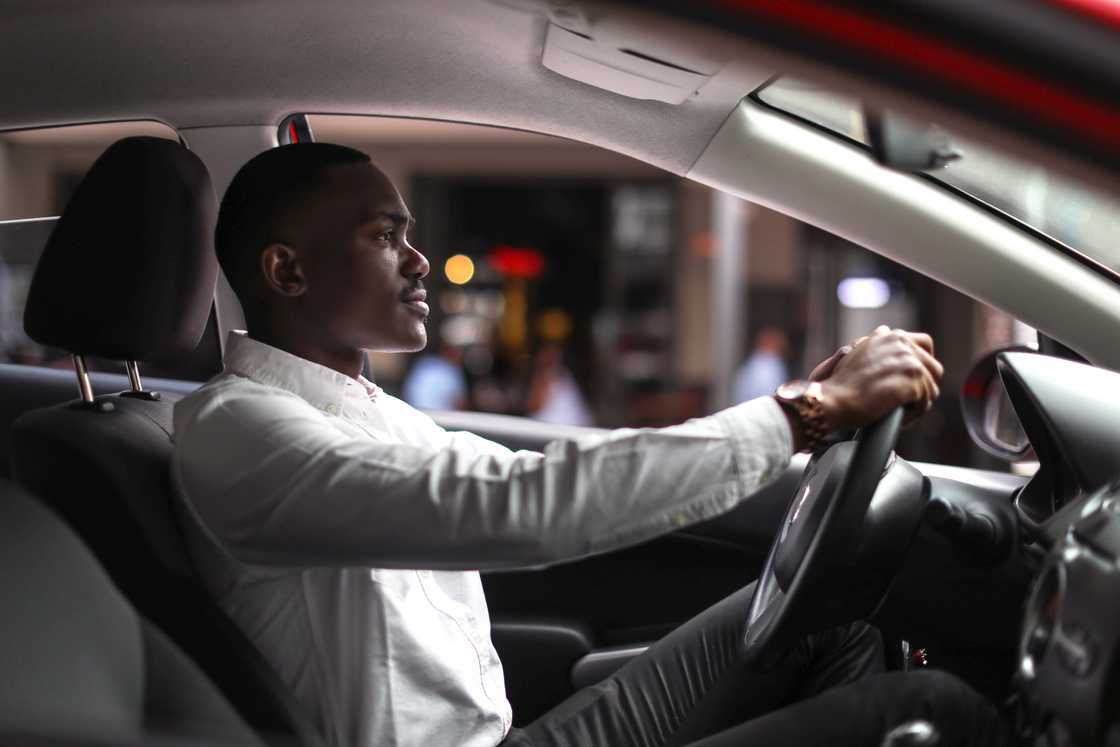
Source: Getty Images
The hospital room in General Hospital was bright, a harsh contrast to the dread I had carried for three days. Mama Iye was lying in a hospital bed, her leg in a cast, but her eyes were open, and the moment she saw me, a faint, familiar smile touched her lips.
"Chinedu, my boy. You look like you've wrestled a danfo under a mango tree. Relax," she whispered, her voice reedy. I pulled a chair to her bedside, struggling to compose myself. "Mama, don't talk, please. Just tell me what happened. The note said you fell. When? And why didn't you call me?"
She paused, looking past me as if seeing the kitchen floor again. "It was Sunday, just after you left. I was rushing to get the last of the beans pottage from the pot and kpak!" She snapped her fingers faintly. "My leg slipped. It broke, just like that.
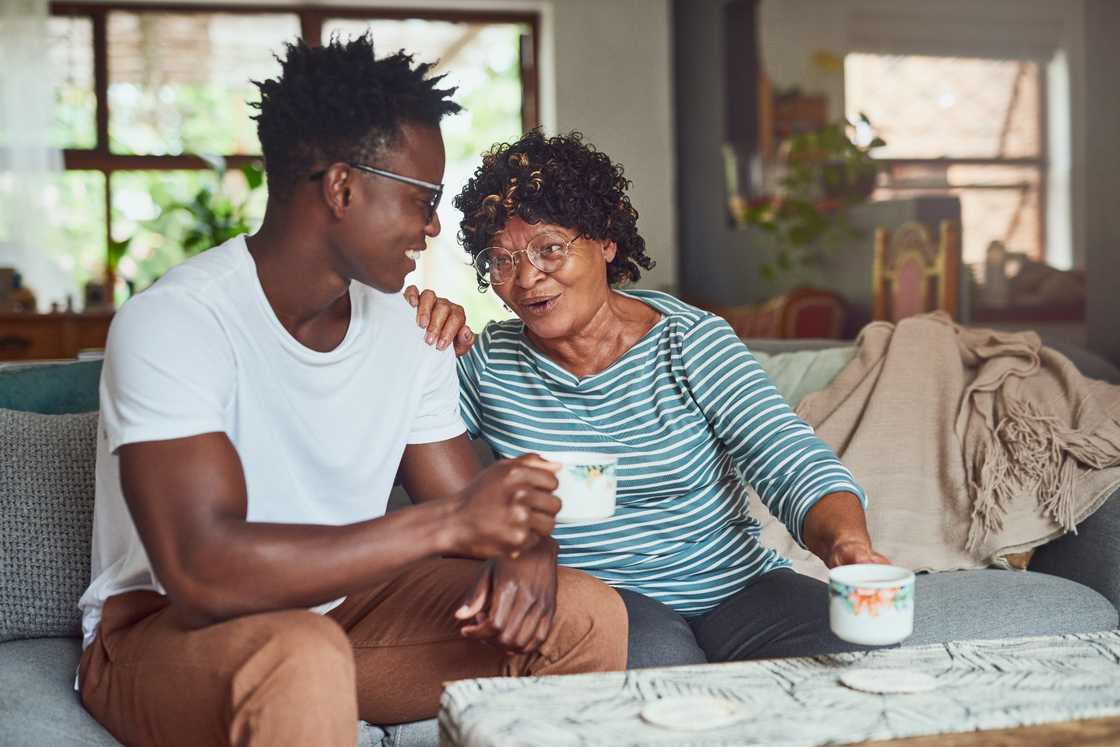
Source: Getty Images
I fell right onto the kitchen floor. The pain, Chinedu, was something else." My chest tightened. Sunday evening. That was the call I had missed. The call she hadn't been able to answer. I had spent that evening unpacking, making a quick dinner, and watching the news, oblivious.
"But your phone, Mama? I called Sunday night, Monday, and Tuesday morning." Her eyes filled with a helpless frustration. "I heard it, Chinedu. I heard it ringing, your special ringtone." She closed her eyes briefly. "It was just there, charging on the small table by the corridor. I tried to crawl.
I tried to drag myself. Every time I moved, the pain was like a machete slicing through my leg. I was too far. I was only a few feet from the phone, like another country. I couldn't reach it." I looked down, unable to meet her gaze.
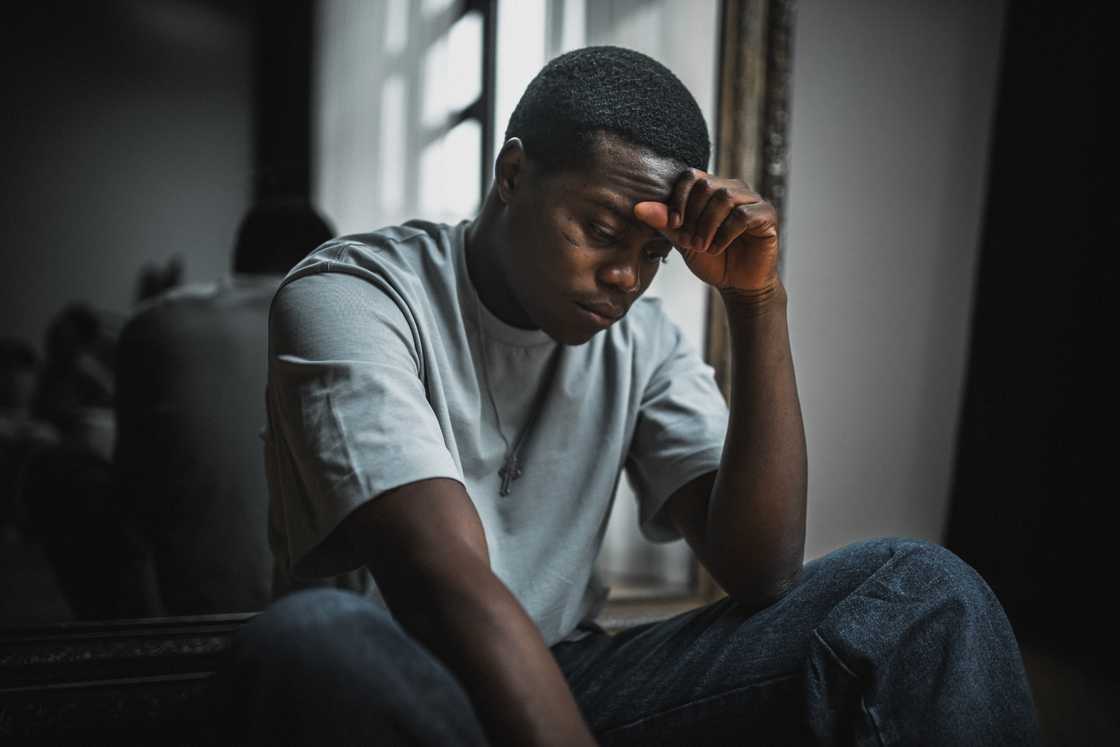
Source: Getty Images
She was stranded, with the very thing I had set up as her safety net, the phone, agonisingly out of reach. My system, my 'care-plan,' had failed. "How long were you there, Mama?" I whispered, my voice thick.
"All of Sunday night," she stated. I tried to shout, but it was late, and my voice wouldn't carry. Monday, all day, I was praying. My water was near the sink. I crawled once to try and reach it, but I couldn't pull myself up.
I was so thirsty, Chinedu. And on Tuesday morning, I thought, 'This is how it ends. Alone on the kitchen floor.'" Her voice was trembling now.
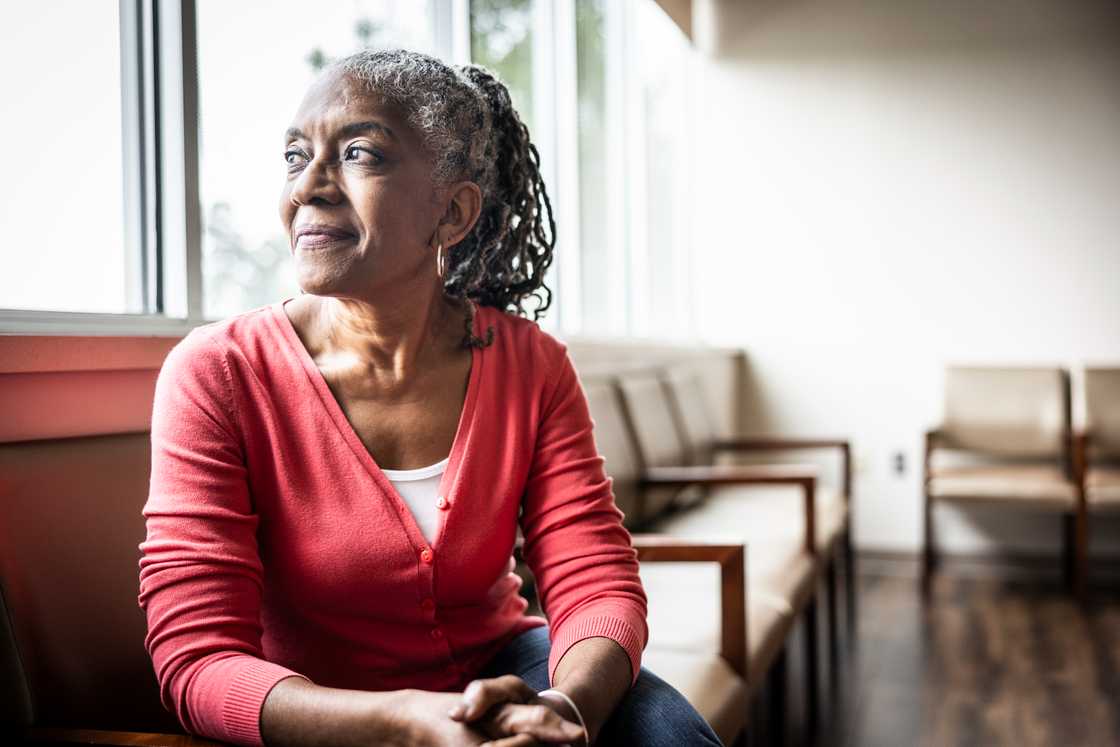
Source: Getty Images
I wanted to weep, to rage at the sheer distance between us, at the cruel irony of her situation. I had paid for everything, yet I had left her to face this in isolation. "But then," she said, a new energy coming into her voice, "I heard the little ones outside.
They were playing their 'ten-ten' game. I tried one last time, a weak, small shout. And then silence. I gave up."
"What happened next, Mama?" I leaned closer, my breath held tight. "A few minutes later, I heard a slight tap on the window. It was Peju's daughter, little Ngozi, peering in. She was the one who saw my leg and my hand on the floor. She screamed, Chinedu.
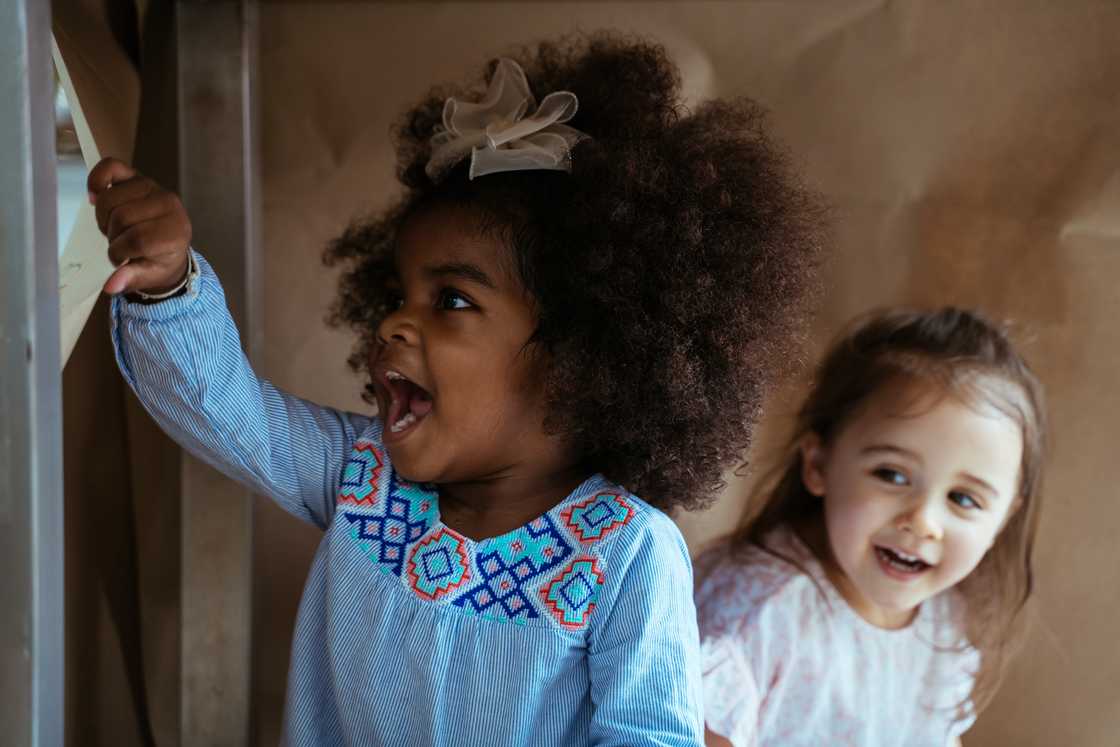
Source: Getty Images
She ran. And that's when the kindred arrived." "The kindred?" I repeated, confused. I thought she meant our distant relatives. "No, Chinedu. The kindred I made here," she corrected, a gentle, knowing look in her eyes.
"Mummy Peju, Baba Emeka, Aunty Funke, the neighbourhood. They are my family now." The shock wasn't that she had been found; the shock was how and why. For the past few days, my deep-seated, painful assumption was that my grandmother was alone, utterly isolated in a fast-paced city neighbourhood, a relic of a bygone era.
I believed my money and my weekly visits were the only things keeping her anchored. I was wrong. It wasn't my sophisticated remote monitoring or my scheduled calls that saved her. Seven-year-old Ngozi, the neighbour's daughter, noticed the anomaly.

Source: Getty Images
"Mummy Peju," Mama Iye explained, "Ngozi came to the house every Tuesday to ask for a story and a small fruit snack before school. She knew something was wrong when she didn't see me sitting on the veranda to wave at her. She told her mother, 'Mama Iye's chair is empty, and the door is not open."
Mummy Peju, the neighbour who penned the note, was the first to arrive. She knew Mama Iye's routine better than I did. Finding the house locked inside, she gathered Baba Emeka and others.
They carefully broke the back window to gain entry. "They didn't break the door, Chinedu," Mama emphasised. "They respected my house, even in an emergency." The neighbours, not my family or friends, had found her, stabilised her, and called the ambulance.

Source: Getty Images
More than that, they had orchestrated the immediate aftermath. "I tried to pay Mummy Peju for the glass," I admitted, shame burning my cheeks. Mama Iye chuckled softly. "She refused. She said, 'Chinedu, your mother did the same for my firstborn when he broke his arm thirty years ago.
This is not business. This is Surulere.' Your grandmother is not a burden, Chinedu. She is a node in the network. I give the children stories, advice, and sometimes a few Naira for sweets. They give me eyes on the ground, a strong arm when needed, and a reason to stay put."
My carefully constructed narrative of my indispensable care crumbled. My grandmother, the financially dependent elder I flew across the city to visit, had built a far more robust, organic, and effective security system than my phone calls and bank transfers could ever replicate.
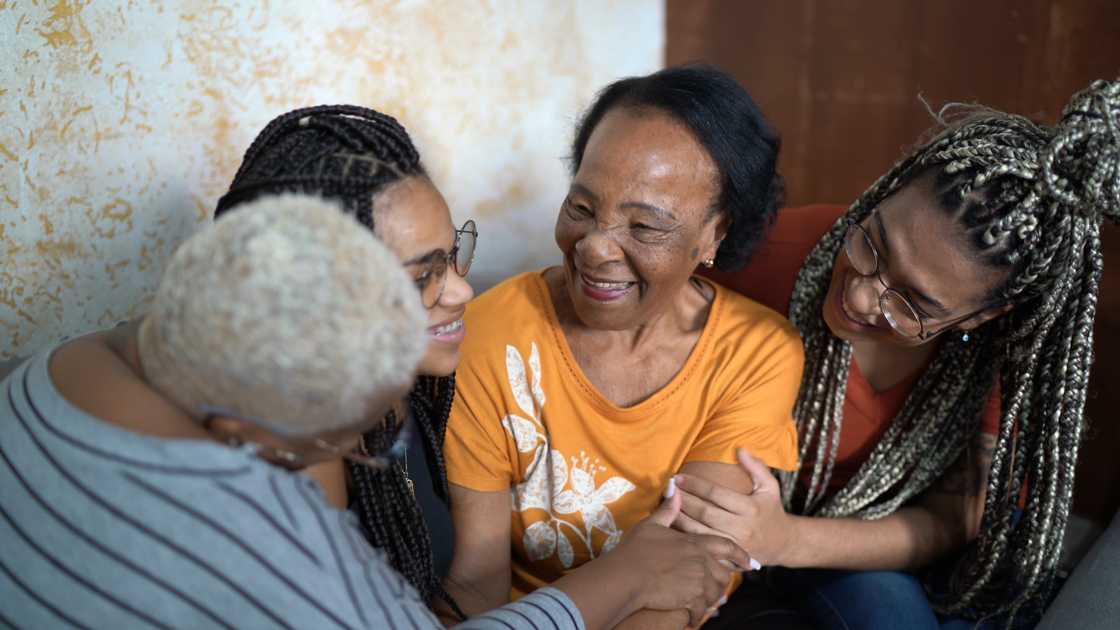
Source: Getty Images
Yes, money was necessary, but the real currency of her life was connection, and I hadn't even known how rich she was. I spent the next two days watching the true extent of this community unfold.
I thought I would be the sole caregiver, sleeping in the hospital chair, figuring out the logistics of physiotherapy and meal preparation alone. But I was slotted into an already running system. A laminated chart with the hospital note was pinned to the wall when I returned to the house on Friday evening.
It was a care roster, detailing who was responsible for what. Baba Emeka, the local craftsman, was listed for "Morning Visit/ prescription at 8 AM." Aunty Funke was on "Meal Prep/Moin-Moin Duty."

Source: Getty Images
Even the younger men in the area were assigned "Security Rounds/Checking on House." They had not just saved her; they had integrated her recovery into their daily lives. I offered to hire a nurse to pay for a professional caregiver. Mummy Peju just shook her head, smiling gently.
"Chinedu, my son, Mama Iye has a family, and we are part of it. The nurse would be a stranger. We are not. We know her pills, her favourite jollof rice spot, and the sound of her cough. You are the grandson of the city, but we are the family of the compound."
My karma, the consequence of my previous neglect and my assumption of her isolation, was a profound humbling. I was reduced from the indispensable provider to a contributing member of a pre-existing, functioning support system.
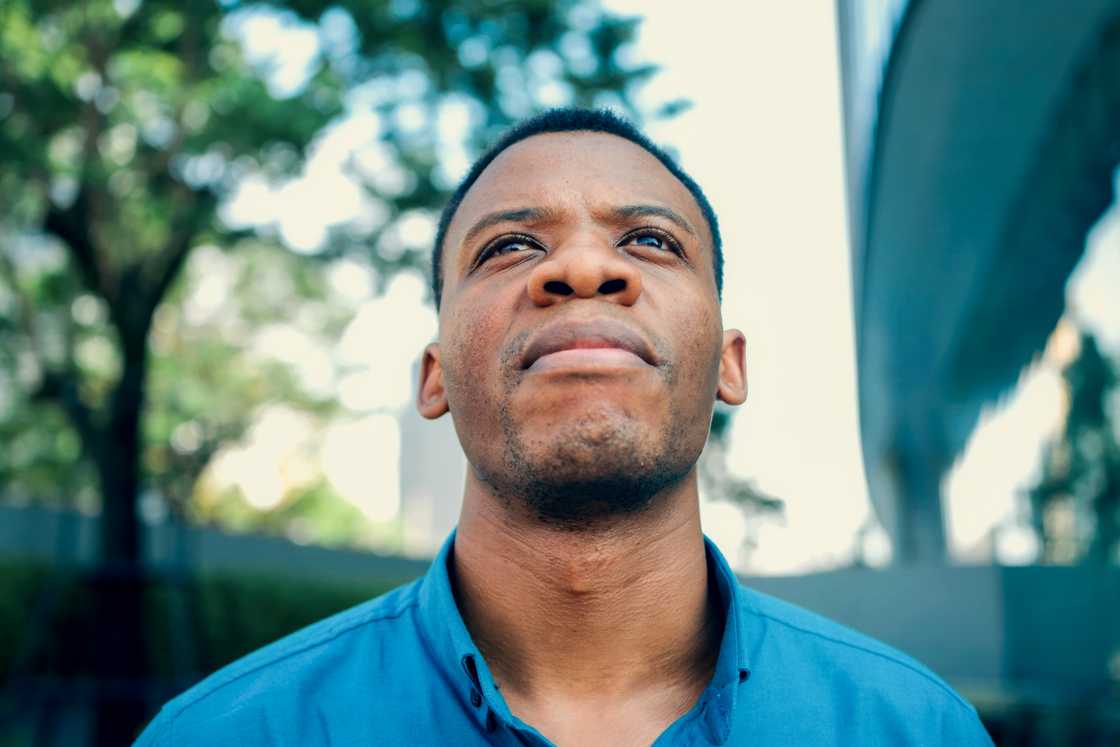
Source: Getty Images
My role was not to take charge but to support the community caring for her. I paid the hospital bills, and my financial role was solid, but the deeper, more human acts of care that truly sustained her were being performed by strangers-turned-family.
She never wanted to move away because she had long ago invested in the only retirement plan that mattered: "people."
The clear lesson I took from that traumatic week and its humbling aftermath is that a phone signal is a poor substitute for a human connection. My life in the city taught me to value efficiency, distance, and financial stability.
I had created a perfect, modern safety net for my grandmother: daily calls, remittances, and a weekly visit, a quantifiable, time-managed form of love. I had mistaken provision for presence.
I believed I was protecting her from the dangers of living alone, but in reality, my physical and mental distance had closed my eyes to the profound strength of her existing network.

Source: Getty Images
I had stripped her of agency by seeing her only as a dependent elder, instead of the community anchor she truly was. The crisis revealed that I was the isolated one, relying on technology, while she was enveloped in her neighbours' warm, reliable blanket.
The old proverb, "If you want to go fast, go alone. If you want to go far, go together," played out in my life with painful clarity. My fast-paced, individualistic approach almost led to tragedy.

Read also
"Change the Will or Burn the Mansion," Uncle Says — Barrister Opens; Police and Press Step In
The neighbours' slow, steady, collective presence saved her. They proved that, in the end, the most critical insurance policy is not a bank account but a front veranda shared with people who care enough to notice when your chair is empty.
The experience forced me to ask myself: In pursuing financial success and modern convenience, what vital connections have I failed to nurture, and who is the seven-year-old child who will have to notice when my chair is empty?
This story is inspired by the real experiences of our readers. We believe that every story carries a lesson that can bring light to others. To protect ' privacy, our editors may change names, locations, and certain details while keeping the heart of the story true. Images are for illustration only. If you'd like to share your own experience, please contact us via email.
Source: YEN.com.gh



